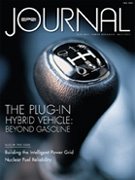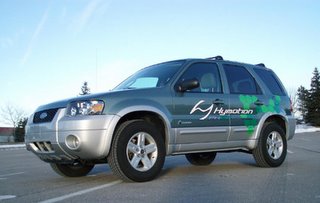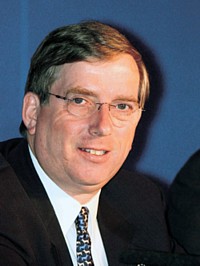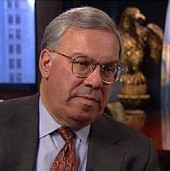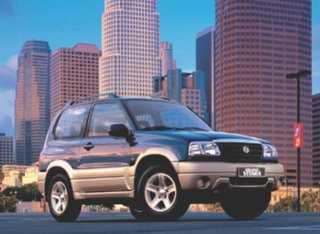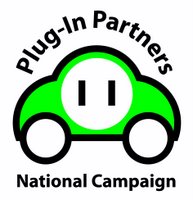 photo EV WorldHere
photo EV WorldHere is a new interview with Andy Frank from
Washington Technology.
Survival Guide: Perspectives from the fieldWashington Technology
Feb. 13, 2006
Andrew Frank,
University of California at DavisMechanical engineering professor and researcher
Andrew Frank has spent
much of the last 30 years studying electric motors and batteries to make vehicles more fuel-efficient. With the recent success of hybrid vehicles — more than 200,000 were sold in 2005 — Frank said the
world is ready for what he thinks is the next logical step: plug-in hybrids.
Plug-in hybrids rely more on electricity; the batteries are charged at night using a standard household outlet. Because of this, they can get up to 100 miles per gallon of gasoline. And unlike electric-only vehicles, if a plug-in hybrid’s batteries are drained, the car simply switches over to gas power.
More than
10 cities,
public power utilities, businesses and national policy groups have launched
Plug-In Partners, a campaign to promote the technology. Frank spoke recently with Staff Writer Doug Beizer about plug-in hybrid technology and car fuel economy.
WT: What is a plug-in hybrid vehicle?
Frank: It takes hybrid technology and makes it more efficient with a better transmission, bigger battery pack and smaller engine.
WT: Do computers play a role in this technology?
Frank: The computer in these isn’t much different than the computer being used in today’s hybrids. It just has a few more lines of code.
WT: Are there any cultural barriers to people adopting this technology?
Frank: Everybody who we have presented the concept to, including senators and congressmen and other public officials, have suddenly realized this is the only way we’re ever going to begin to transition from the oil diet that we’re on.
Because what we’re doing is using an existing energy infrastructure, we don’t have to build plugs; we’ve already got those. And there’s no need with this plug-in hybrid to charge quickly. You just charge at a slow rate, which means you can do it at 110 volts [a household plug].
With a fully electric car, if you don’t have a charge, you’re in trouble. With this car it doesn’t matter, because you always have the gasoline engine.
WT: For this to catch on, will car-makers need government funded fleet-vehicle contracts?
Frank: The best way to start this technology is to begin with the fleet. That was one of the reasons for our Plug-In Partners launch in Washington, to get fleet users from around the country to say to the car companies, “If you build it, we’ll buy it.”
WT: Any specific government applications for this?
Frank: Delivery van and truck fleets are perfect for this. It would be great for the Postal Service. When you think about it, most Postal Service vehicles drive only 50 miles a day. The kind of cars we have constructed can go 60 miles all on electric, so that means the whole Postal Service fleet could run on electricity.
WT: Based on the success Toyota has had with its hybrids, what do you think the future is for plug-in hybrid technology?
Frank: Any one of our car companies that decides to adopt this technology could have production vehicles in three years, because it is a relatively small modification of the existing technology. But you’re not going to start out by replacing 10 percent of the fleet at a time. You start replacing, at best, 1 percent of the fleet. Even if we begin at a tenth of a percent of the fleet of vehicles, or 50,000 cars a year, that would be a great step.
WT: What motivates you to pursue this technology?
Frank: I have always felt it was possible to build a car that gets more than 100 miles per gallon; it’s what this country needs. To build a car with high performance and all the fun factors of a conventional car, but have it run on electricity, which takes care of all the emissions problems and solves the energy problem, is really what this country needs. So I’ve been promoting this.
WT:Fully electric cars kind of fizzled out. Could the same happen with this?
Frank: No. Look at the first year of the Ford Escape hybrid. Ford is putting out 20,000, 10 times more than any electric car program ever put out. Bill Ford will up that from 20,000 to 250,000 a year.
That’s a serious commitment."
Become a Partner today.
Sign the On Line Petitionmore news
